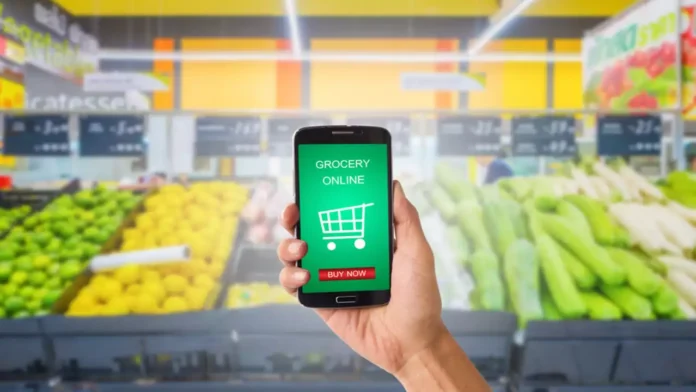In the last quarter of 2023, around 12 million local grocery stores in India observed a significant slowdown in sales. Meanwhile, quick-commerce companies not only gained a larger market share for impulse purchases but also for bulk purchases of essential items, as reported by consumer goods companies and analysts.
Marico, Dabur, Emami, and Parle, along with industry analysts, stated that general trade, represented by kirana stores, encountered sluggish growth and encountered challenges in terms of profitability and liquidity in the previous quarter. On the contrary, e-commerce exhibited robust growth during the same period, according to their observations.
Marico, known for products like Parachute hair oil and Saffola oats, reported that although general trade channels remained sluggish, the revenue performance of e-commerce channels exhibited robust health.
Marico, known for products like Parachute hair oil and Saffola oats, reported that although general trade channels remained sluggish, the revenue performance of e-commerce channels exhibited robust health.
Quick-commerce platforms such as Swiggy Instamart, Blinkit (owned by Zomato), Zepto, and BBNow, offering delivery within 10-20 minutes, are responsible for contributing 30% to 50% of the e-commerce sales for FMCG companies, according to executives.
Continue Exploring: FMCG giants turn to data forecasting to address online stock gaps in quick commerce
Ayush Gupta, head – domestic market, at consumer staples maker KRBL that sells India Gate rice, said, “We are surprised the way large packs of staples have taken off in quick commerce, which is growing 100%QoQ for us.”
However, he added that the expansion in kirana grocery stores stands at approximately 10%, albeit on a larger base.
Adani Wilmar and LT Overseas have reported strong sales growth in staples packs, including those of 5 kg or 10 kg, on quick-commerce platforms. These platforms were traditionally seen as channels for impulse categories like soft drinks and snacks.
The surge in quick commerce has prompted FMCG companies to introduce numerous product innovations and provide additional consumer promotions, along with festive or ‘big day’ discounts, such as those on Independence Day, through the platforms.
“ITC is engaged in collaborative forecasting for demand management with leading quick-commerce platforms for better demand management,” said Sandeep Sule, divisional chief executive – trade marketing and distribution at the maker of Sunfeast biscuits and Fiama soaps. “In addition, there are regular engagements between ITC and quick-commerce teams to continuously review on-platform availability of products which enables linking of packs across their dark stores and help in increasing the availability of products,” he said.
A representative from Nestle, the manufacturer of Maggi noodles and Kitkat chocolate, stated that quick-commerce platforms currently account for nearly half of the company’s e-commerce business.
“While ecommerce contributed to 6.6% of Nestle’s business for the nine-month period ended September 30, 2023, quick commerce has been driving growth within the segment with almost 50% of the overall ecommerce business being contributed by quick commerce,” the spokesperson said.
According to a January report by ICICI Securities, the continued demand stress in the mass segment and the extended slowdown in the general trade channel have impacted the revenue of FMCG companies during the December quarter, coinciding with the peak festive Diwali quarter.
FMCG companies have stated that they are augmenting the frequency of inventory replenishment cycles to prevent stock-outs. Additionally, they are allocating more stock and actively assessing real-time data in collaboration with the platforms.
Continue Exploring: Indian FMCG sector eyes robust growth in 2024 amidst favorable market conditions





